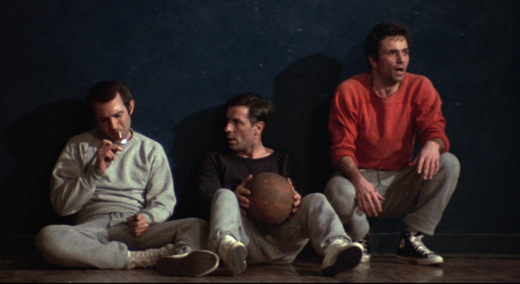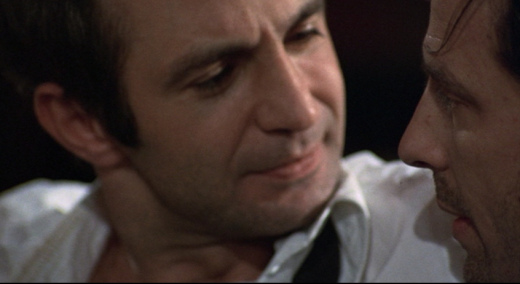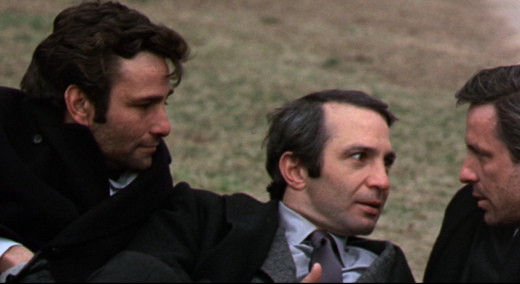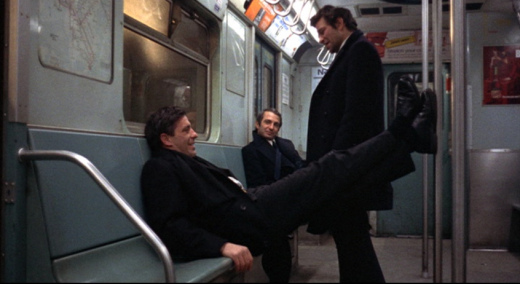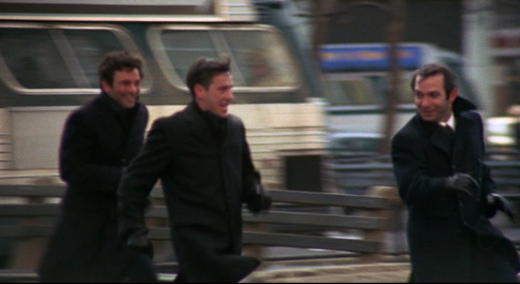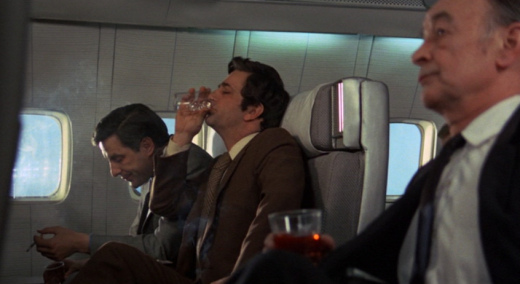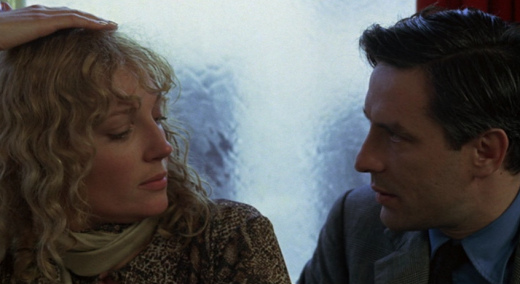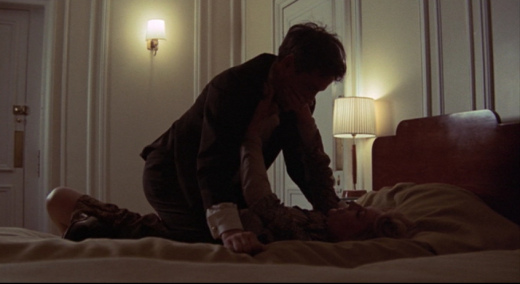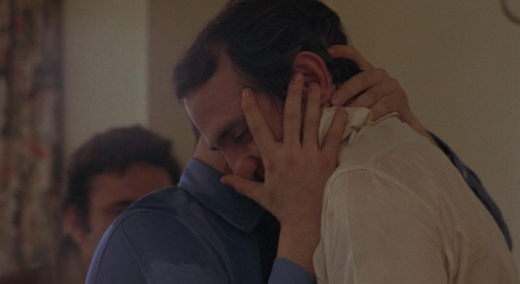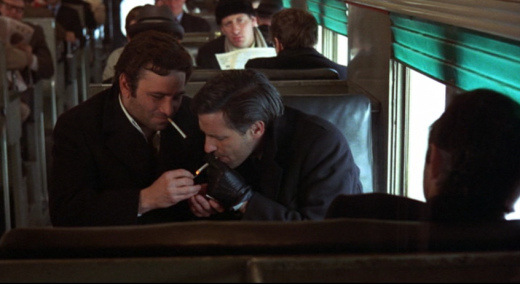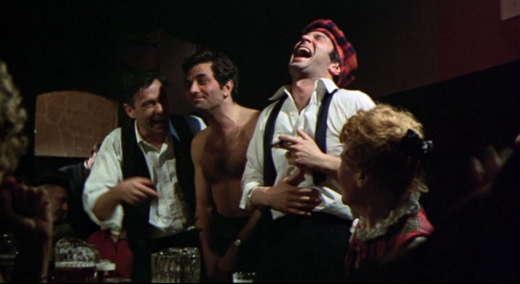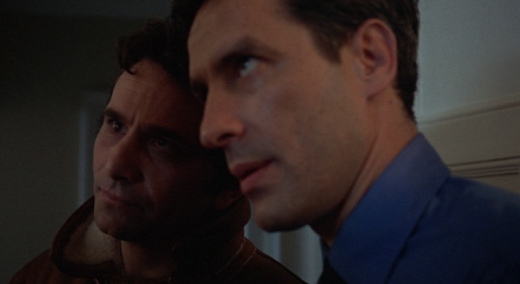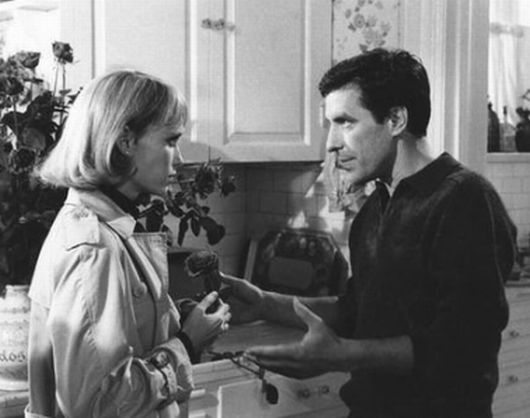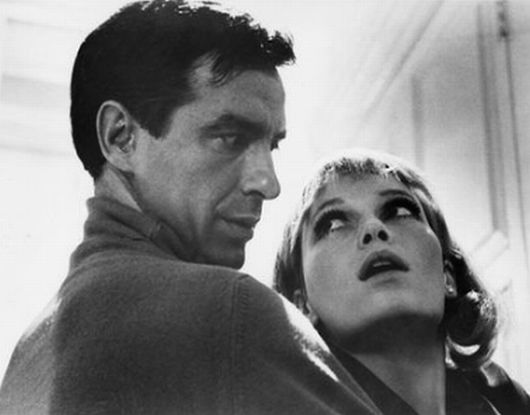 FILM
FILM In Which John Cassavetes Keeps A Part Of Himself Alive
 Tuesday, September 6, 2011 at 11:50AM
Tuesday, September 6, 2011 at 11:50AM 
The Defenseless Thing
 John Cassavetes' 1974 production of A Woman Under the Influence represented the pinnacle of his artistic collaboration with Gena Rowlands. He wrote her one of the most complex and dramatic female roles in cinematic history: Mabel Longhetti, a "mentally unstable" wife to a construction worker, mother of three, Los Angeles housewife. The echoes of time have ensured that her performance, ostensibly an alienating portrayal of a "crazy woman", possesses the characteristics of a far more nuanced individual. In his notes about the production of A Woman Under the Influence, Cassavetes muses at length about how his relationship with his wife informed the writing of the role, creating a shadow puppet theater of his own life. He begins by describing the differences between himself and Gena.
John Cassavetes' 1974 production of A Woman Under the Influence represented the pinnacle of his artistic collaboration with Gena Rowlands. He wrote her one of the most complex and dramatic female roles in cinematic history: Mabel Longhetti, a "mentally unstable" wife to a construction worker, mother of three, Los Angeles housewife. The echoes of time have ensured that her performance, ostensibly an alienating portrayal of a "crazy woman", possesses the characteristics of a far more nuanced individual. In his notes about the production of A Woman Under the Influence, Cassavetes muses at length about how his relationship with his wife informed the writing of the role, creating a shadow puppet theater of his own life. He begins by describing the differences between himself and Gena.

I know when I was not working, and Gena was working for me, I was a pretty good housewife and everything else. But I didn't really have the same reactions as a woman would have. Mainly because I didn't have to be a housewife the rest of my life. I didn't have to think into the future of when I'd get older or when my attractiveness would fade, or when the kids would grow up or when the baby would cease to cling to you, and you're not really a mother then, and you have to think, well, should I be the friend or should I be the mother?
Gena and I were speaking about the pictures we were going to make, how the roles are so thin and everything is made so a narrative can work. We were talking about how difficult love was and how tough it could be to make a love story about people who were totally different culturally, coming from two different family groups that were diametrically opposed and yet still regarded each other very highly. I kept thinking about that. Gena and I are absolutely dissimilar in everything we think, do and feel.

Beyond that, men and women are totally different. When I started writing the scripts, I kept these things in mind and didn't want the love story easy. I made a lot of discoveries about my own life.
I absolutely wrote A Woman Under the Influence to try to write a terrific part for my wife. Gena wanted to do a play. She was always complaining we're living in California, she loves the theater and everything. Gena really wanted to do a play on Broadway. And I had always fancied that I would write a play. She wanted something big. She said, "Now look, deal with it from a woman's point of view. I mean deal with it so that I have a part in this thing!" and I said, "OK," and I went off and had been thinking about it for a year anyway. And I had taken seven or eight tries at bad plays and came up with this play, which was not the play the movie was, but it was based on the same characters.

And Gena read it and said, no, she wouldn't do it. And I'm very stubborn so I didn't realize that she liked the part but that on the stage, to play that every night, would kill her. I had no concept of that because we're all obsessed, everyone's obsessed, that is, in this stupid thing. And so I wrote another play on the same subject with the same characters, deepening the characters and making it even more difficult to play. And I gave it to Gena and she said, "I like that tremendously. I like the first one too, but I don't think I could do that on Broadway." So I wrote another play, and now there were three plays! And I took them to New York and I got a producer to produce the plays on Broadway and I thought it was a terrific idea to do these three plays on consecutive nights with matinees, see?
Gena's not a particularly ambitious woman in the trade, as it goes. Although, if she sees a good part, she'll kill herself for it, but I mean kill herself performing it, but not getting it. I mean, it's either given to her, or she'll play with the kids or do something else or go out. When Gena read the plays she said, "No one could do this every night!" She feared they would take her to a sanitarium if she became that keyed up over a long period of time. So then I said, well, all right, let's try to make it a movie.

I can't just go out and make what I want. I have to go through a whole big process of crap, talking to people, proving to them that whatever we are going to do is going to make money. If I can prove to them that my intentions are to make money, then they will let me make any film I want. But it becomes increasingly more difficult to tell them that since I'm not concerned with making money.
You con people and you lie to them. You try to keep a little part of yourself when somebody says to you, "You figure it's the greatest picture ever made?" You try to keep a little part of yourself alive.
So I went through all the processes of calling people in Wisconsin and Idaho and, you know, big industrialists, and trying to find out how to raise the money. And we couldn't raise anything, not anything!
Gena tells everyone it's hard to live with me because there is nothing she can say that I don't write down. I see Gena around the house and with the kids and I tape record what I see. I do tape record things and exaggerate them and blow them up and the incidents are not the same. I mean, I'm not a writer at all! I just record what I hear. As prattle. What people are concerned with in a day's living. I have a good ear for prattle. Every line in your life is eaten up by the movies you do.
The preparations for the scripts I've written are really long, hard intense studies. I don't just enter into a film and say, "That's the film we're going to do." I think, "Why make it?" For a long time. I think, "Well, could the people be themselves, does this really happen to people, do they really dream this, do they think this?"
There were weeks of wrestling to get the script right. I knew hard-hat workers like Nick, and Gena knew women like Mabel, and although I wrote everything myself, we would discuss lines and situations with Peter Falk, to get his opinion, to see if he thought they were really true, really honest. The actors discussed the clothes, the characters would be wearing, the influence of money on their lives, the lives of the children, why they sleep on the ground floor, etc.
Everything was discussed, nothing came from me alone. We write a lot of things that aren't in the movie, as background. So that when we got to the scene, you might rewrite on the spot, but we might have already gone in three, four, five, seven, eight, nineteen different versions of the scene.
In replacing narrative, you need an idea. What you do is take an idea that you have about a situation that seems as normal as everyday life so the audience doesn't see the idea. So it doesn't show. Of course the idea itself has to be good. It really has to be first-rate. And the idea in A Woman Under the Influence was a concept of how much you have to pay for love. That's kind of pretentious but I was interested in it. And I didn't know how to do it, and none of the other people knew how either, so we had to work extremely hard.
I knew that love created at once great moments of beauty and that on the other hand it makes you a prisoner. It just seems to me that women are alone and they are made prisoner by their own love. If they commit to something then they have committed to it and it's a torture. And it's true. I mean, I see it in my relationship to Gena. Within such a system, men have always been in a more favorable position — they are allowed to test themselves against the rest of the world since they are in contact with it. But I feel it too. A man feels that also. And nobody knows how to handle it. Nobody knows how to handle it.

There's a very small part of all of us that has any kind of value. I think there's a small part of us that says we'd like to say something better than what is usually said, on the purest level. And the rest of it is con-men and struggling people just like everyone else — where you're constantly humiliated and go through life, even if you're not humiliated, thinking you are.
And then you get very lucky and you meet a group of creative people that are very much like you who are locked up in their own selves, trying to come out, trying in some way to express something that is very personal to them.

When Gena was committed by Peter and she went to an institution, and as the film says, six months later she comes out — I would have thought that she would be so hostile against her husband. But she comes in the house and she never even acknowledges his presence. She's only considering her children.
And we did a take, and I thought, "Should I stop this? I mean, she never even looked at Peter." She walks in the house and everyone greets her and she never looks at her husband — I mean, she looks at him, but she never sees him, yet she's not avoiding him. And I thought, well, that's the defenseless thing carrying itself too far here! What are we doing?

All through that homecoming scene I was astounded by what was underneath people, what these actors had gathered in the course of this movie. And I was way behind them. I was staggered because Gena was so quiet and mild. She wasn't hostile at all. I started yelling because I thought she was acting so the audience would like her, but I was wrong. She was expressing fear, which separated her from the people she loved.
When we looked at the dailies, Gena said, "What do you think? I'm at a loss, did we go too far?" And I said, "I didn't like it, I just didn't like it at all." I mean, I found it really embarrassing to watch.

It was just such a horrible thing to do to somebody, to take her into a household with all those people after she'd been in an institution, and their inability to speak to this woman could put her right back in an institution, and yet they were speaking to her, and Gena wanted to get rid of them and at the same time not insult them. But then I thought what Gena did was like poetry. It altered the narrative of the piece. The dialogue was the same, but it really made it different. I would grow to love those scenes very, very much, but the first time I didn't.

By the time you get him to the beach — the beach scene, I think, is wonderful, and Peter is wonderful because he has absolutely no idea what he is doing there. I had the camera down there and they just started walking. I never went near them and they are walking and Peter has some lines and he says the lines and then they don't know what to do. Now I could tell them, but that would kill it. What different does it make what he does? He has to do it. I can't do it. The camera can move. It can follow, you know. So where they play that scene and what they do has to be in their own timing. And when Peter gets there at the end of the beach and he pushes the little girl down, there was a wonderful moment. I see him trying to communicate with his children. I see him trying to touch. I see him not caring.

I see so many things that developed that wouldn't have if you formalized a view of the character through your own mind and didn't allow room for interpretation. I wrote it and as soon as I wrote it I killed the writer. There is no writer because the writer can only make the actor feel insecure. I have been in a lot of movies and as soon as the writer would come on the set everyone died. Because the writer knows exactly how everyone should be played, exactly what the intentions are. But writing is one medium and film is another medium.
You can find Molly Lambert's review of John Cassavetes' Husbands here.

"Repetition" - ZAZA (mp3)
"Sooner or Later" - ZAZA (mp3)
"Always On" - ZAZA (mp3)













































